
Skagen: Denmark's Northern Gem
Welcome to Skagen, a picturesque town at the northern tip of Denmark, where the North Sea and the Baltic Sea meet in a spectacular natural phenomenon. Known for its breathtaking landscapes, Skagen offers pristine sandy beaches, rolling dunes, and the unique light that has inspired artists for centuries. Stroll through the charming old town, with its quaint yellow houses adorned with red roofs and white fences. Visit the Skagens Museum to appreciate the works of the famous Skagen Painters, who captured the beauty of this region in their art. Don't miss the Buried Church, a fascinating historical site where only the steeple remains visible above the sand. Nature lovers will enjoy Grenen, the northernmost point of Denmark, where you can stand with one foot in the North Sea and the other in the Baltic Sea. The area is also a haven for birdwatchers, with many species migrating through each year. For a taste of local seafood, dine at one of the many excellent restaurants along the harbor, where fresh fish is brought in daily by the local fishermen.
Local tips in Skagen
- Visit Grenen early in the morning or late in the afternoon to avoid the crowds and enjoy the stunning views.
- Rent a bike to explore the town and surrounding countryside at your own pace.
- Check the local calendar for festivals and events, such as the Skagen Festival in July, celebrating music and culture.
- Bring a windbreaker, as it can get quite windy, especially near the coast.
- Don't forget your camera; the light in Skagen is perfect for photography.
Skagen: Denmark's Northern Gem
Welcome to Skagen, a picturesque town at the northern tip of Denmark, where the North Sea and the Baltic Sea meet in a spectacular natural phenomenon. Known for its breathtaking landscapes, Skagen offers pristine sandy beaches, rolling dunes, and the unique light that has inspired artists for centuries. Stroll through the charming old town, with its quaint yellow houses adorned with red roofs and white fences. Visit the Skagens Museum to appreciate the works of the famous Skagen Painters, who captured the beauty of this region in their art. Don't miss the Buried Church, a fascinating historical site where only the steeple remains visible above the sand. Nature lovers will enjoy Grenen, the northernmost point of Denmark, where you can stand with one foot in the North Sea and the other in the Baltic Sea. The area is also a haven for birdwatchers, with many species migrating through each year. For a taste of local seafood, dine at one of the many excellent restaurants along the harbor, where fresh fish is brought in daily by the local fishermen.
When is the best time to go to Skagen?
Iconic landmarks you can’t miss
Skagen Gray Lighthouse
Denmark's second-tallest lighthouse where two seas meet, now a hub for bird migration science and coastal heritage.
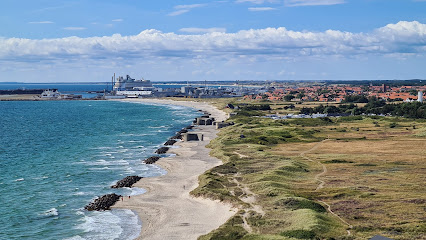
Den Tilsandede Kirke
A Gothic tower rising from sand dunes—Denmark's haunting monument to nature's relentless power.
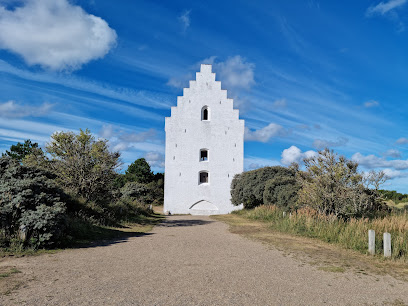
Skagen Marina
Denmark's northernmost marina where two seas meet, blending working harbour authenticity with modern sailing amenities.
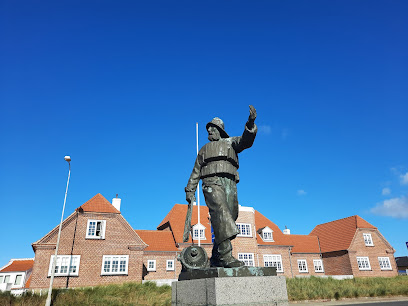
Vippefyret
A simple wooden tilting beacon on a dune above Skagen’s shore, Vippefyret brings Denmark’s early lighthouse history to life amid sea views and northern light.
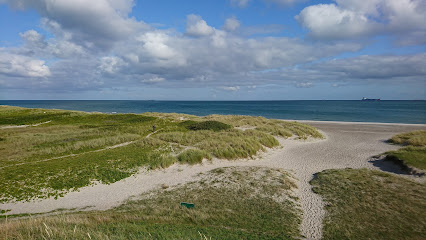
Solnedgangspladsen, Gammel Skagen
Denmark's premier sunset gathering place where the North Sea horizon ignites with daily natural drama.
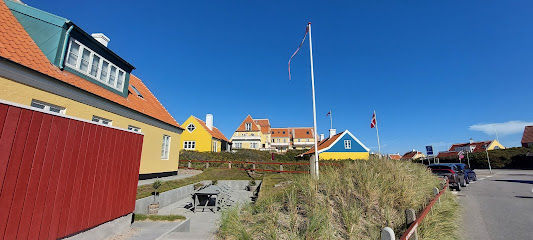
Skagen Havn
A bustling North Sea harbour where fishing fleets, cruise liners and a cosy marina meet under Skagen’s famous northern light.
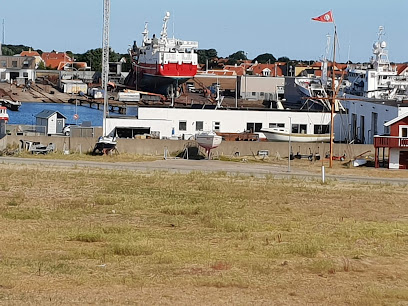
Flagbakken
Panoramic hilltop views spanning Skagen's modern town, historic quarter, and the haunting buried church tower.
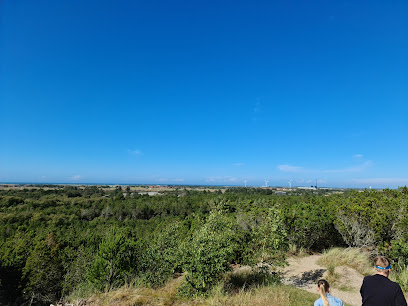
Skagen Station
Denmark's northernmost railway station, where historic yellow architecture meets the gateway to two seas.
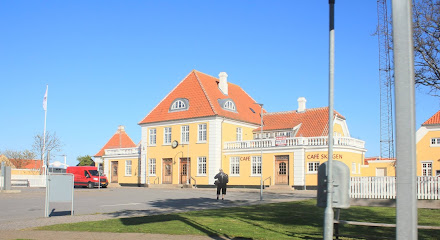
Leuchtturm Skagen
Denmark's second-tallest lighthouse where two seas meet, offering panoramic views, bird migration exhibitions, and acclaimed Nordic cuisine.
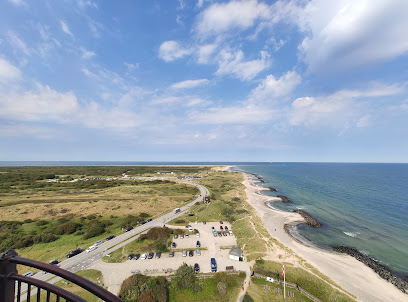
Mindesten for Klitplantør Thygeson
A modest granite stone in Skagen Klitplantage honouring the dune inspector who planted millions of pines and transformed the shifting sands south of Skagen.
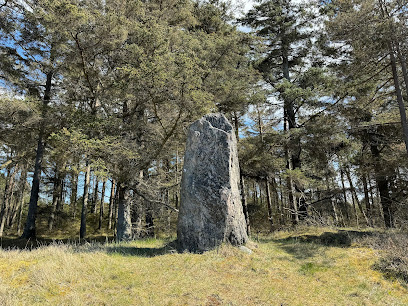
Befrielsessten i Skagen
A solemn Danish liberation memorial marking freedom from Nazi occupation in 1945.
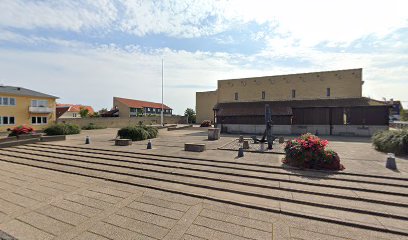
Unmissable attractions to see
Grenen
Stand on a shifting sandbar at Denmark’s far tip, where Skagerrak and Kattegat collide in crisscrossing waves, seabirds wheel overhead and seals laze on the shore.
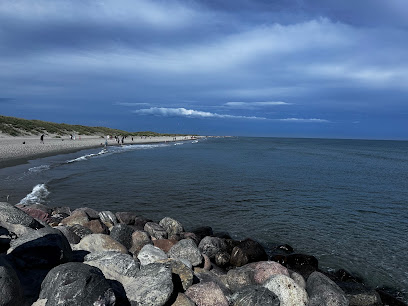
Skagens Museum
Denmark’s northern light on canvas: the original Skagen painters’ museum uniting intimate interiors, wind-swept seascapes and a historic artist community under one roof.
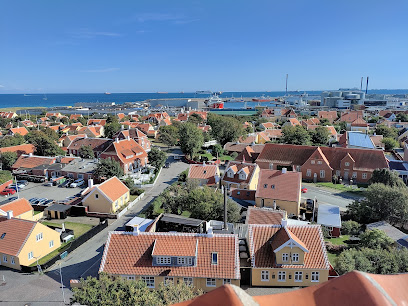
Råbjerg Mile
Vast migrating dune in northern Jutland where wind, sand and time create an inland desert of towering ridges, sweeping views and ever‑shifting landscapes.
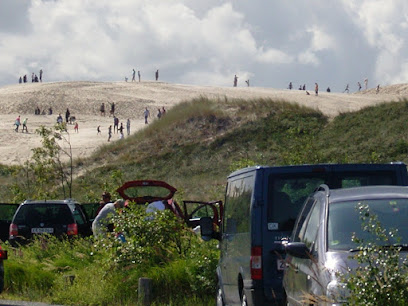
Den Tilsandede Kirke
A solitary white tower in Skagen’s dunes tells the haunting story of a medieval church slowly buried and defeated by centuries of drifting sand.
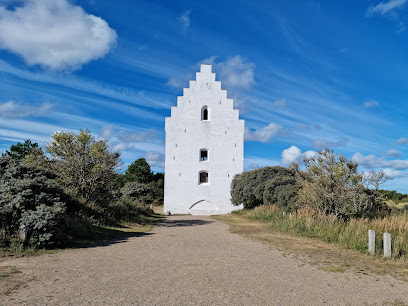
Skagen Marina
A bustling mix of yachts, fishing boats and seafood sheds, Skagen Marina captures the maritime soul and golden light of Denmark’s far northern tip.
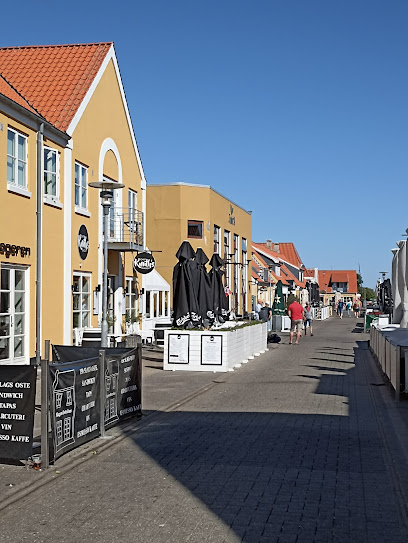
Vippefyret
A simple wooden beacon with a tilting fire basket, Vippefyret turns Skagen’s windswept dunes into a vivid window onto centuries of coastal navigation and seafaring risk.
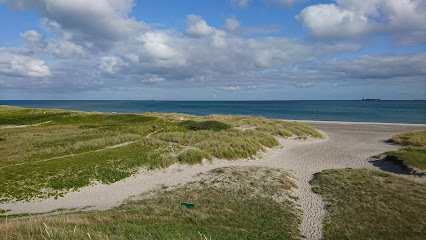
Skagen Bunkermuseum
Explore a genuine World War II German medical bunker in the dunes of Skagen, where original rooms, artifacts and sea air bring the Atlantic Wall to life.
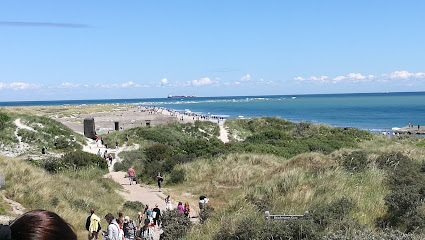
Skagen Kystbatteri
World War II concrete, windswept dunes and wide North Sea horizons meet at Skagen Kystbatteri, a former German coastal fortress turned evocative bunker museum.
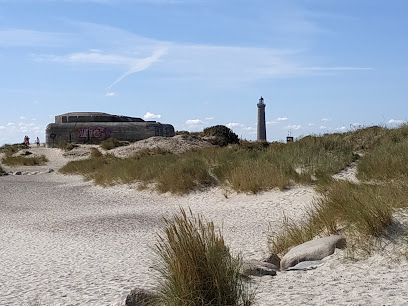
First Camp Råbjerg Mile - Skagen
Family-friendly holiday park between dunes and sea, with pools, play areas and cabins set in classic Skagen landscapes near the wandering dune of Råbjerg Mile.

Anchers Hus
Step into the preserved home and studios of Anna and Michael Ancher, where Skagen’s famed artists’ colony comes to life among canvases, furniture and coastal light.
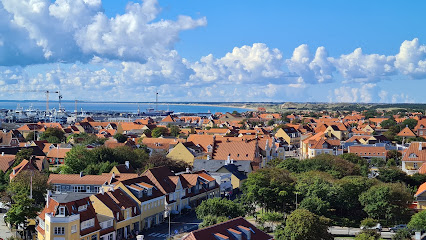
Drachmanns Hus
The eccentric poet's intimate studio where Danish literary genius met artistic vision
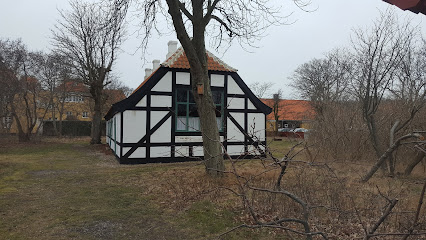
Skagen Kirke
A warm yellow seaside church where maritime heritage, Nordic light and thoughtful architecture meet in the historic heart of Skagen.
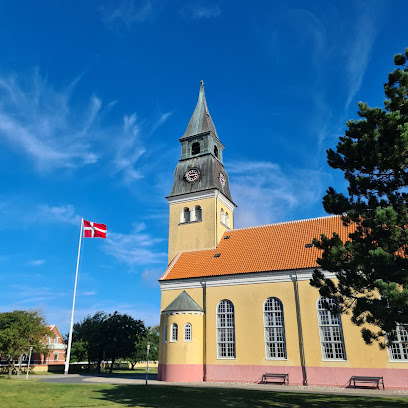
Kystmuseet Skagen
Open‑air village, coastal history and hands‑on stories of Skagen’s fishermen and sea rescuers at Denmark’s windswept northern tip.
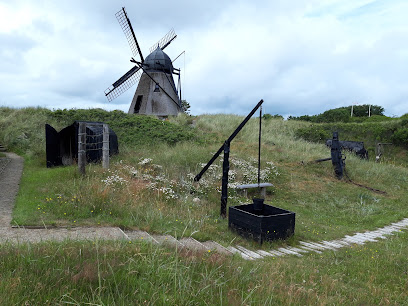
Maskinrummet
Industrial nostalgia, roaring engines and maritime stories come together at Skagen’s harbour-side Maskinrummet, where Denmark’s engine heritage is brought vividly to life.
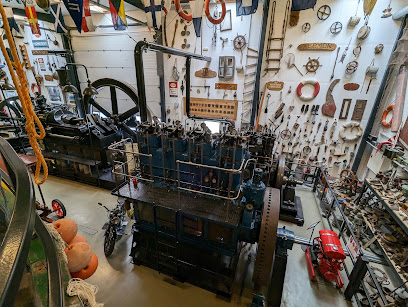
Skagen Nordstrand
Vast, wind-sculpted sand and the famed Skagen light meet at Denmark’s true northern edge, offering a raw, elemental beach where dunes, sea and sky reign.
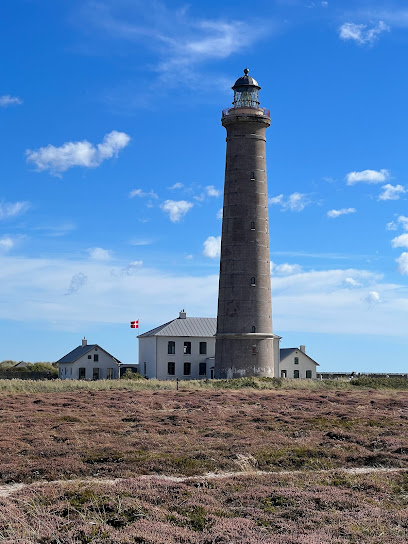
Essential places to dine
Skagen Fiskerestaurant
Classic harbour-side seafood in Skagen’s historic fish warehouses, serving fresh local catches in a relaxed maritime setting at the very top of Denmark.
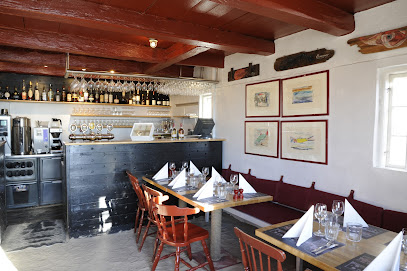
Jakobs Café & Bar
Lively all‑day café, bar and seasonal nightclub in the heart of Skagen, blending terrace dining, comforting brasserie dishes and live music into one social hub.
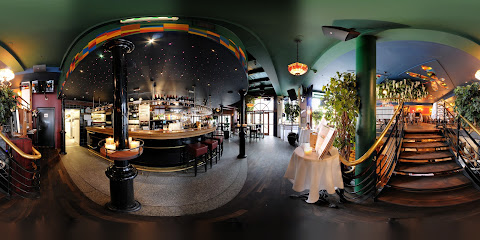
Skagen Bryghus A/S
Historic brewery and restaurant in a converted power plant, serving craft beer and coastal Scandinavian cuisine.
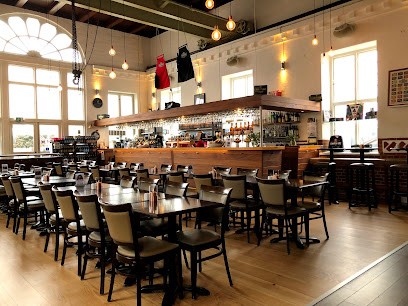
Jørgens Spisehus
Casual harbour-side café in Skagen serving hearty Danish classics and fresh local fish in a bright, unfussy setting right by the working fishing port.
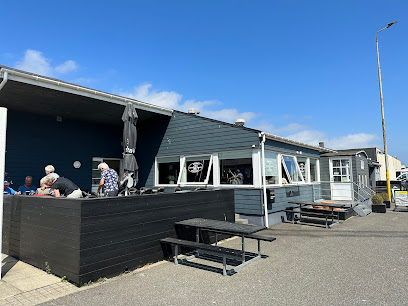
Dit smørrebrød - Skagen
Classic Danish smørrebrød and cosy “mormor” cooking in a harbour‑side dining room with red‑checked tablecloths at the heart of Skagen’s seaside life.
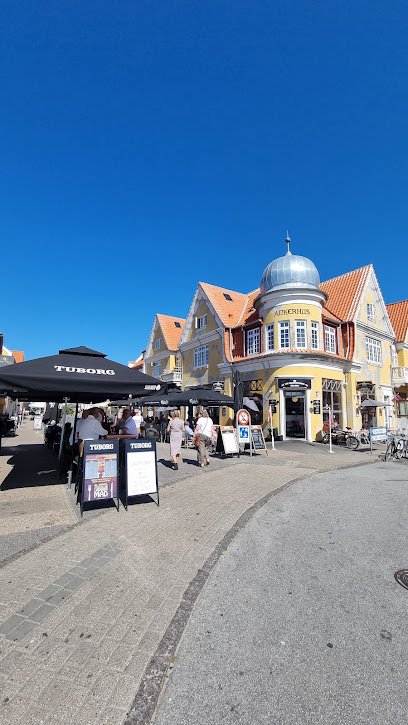
Pakhuset
Historic harbor warehouse in Skagen transformed into a relaxed fish-focused restaurant with marina views, lively summer events and an upstairs fine-dining gem.
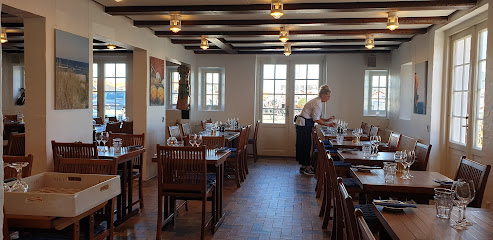
Bodilles Kro
Classic Danish inn-restaurant in Skagen serving hearty kro dishes, local fish and plant-based options in cozy interiors and a leafy summer courtyard garden.
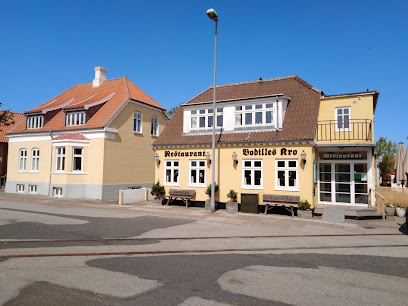
Restaurant Firenze Pizzeria
Long‑running Italian favourite by Skagen’s harbour, serving generous pizzas, pastas and seafood in a cosy, casual setting just steps from the fishing boats.
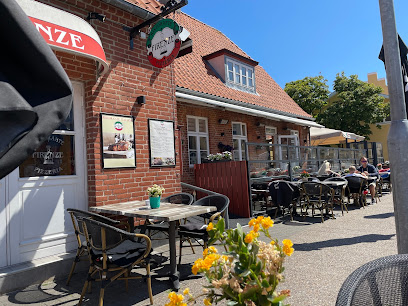
Café Knuth's
Harbourfront café-restaurant in the heart of Skagen, serving generous Danish café dishes, great coffee and drinks in warm, freshly renovated indoor and courtyard spaces.
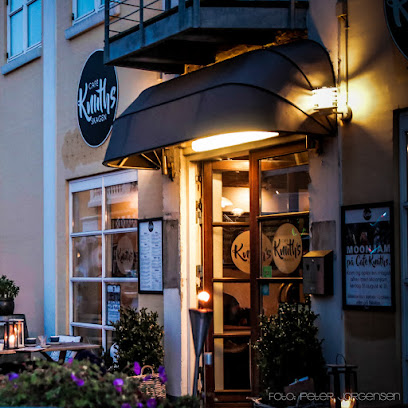
Brøndums Hotel
Historic seaside hotel beside Skagens Museum, where the spirit of the Skagen Painters, classic Danish interiors and refined local cuisine come together in atmospheric style.

Foldens Hotel
Traditional Skagen hospitality in a central, lively hotel and café that blend coastal character, simple comforts and classic Danish flavours just off the main street.

SkawGrillen Tinas grill
Classic Danish grill bar in seaside Skagen, serving hearty chicken, burgers and local fish favorites just a short stroll from the town’s beaches.
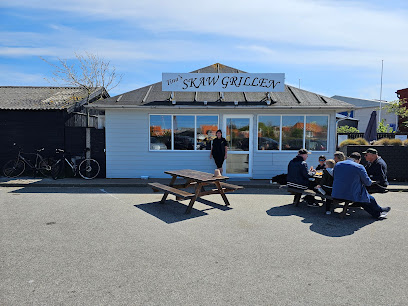
Wittco Fish and Shellfish
Harbourfront seafood buffet in Skagen’s historic red warehouses, serving home-made fish specialities and shellfish platters with close-up views of the marina.
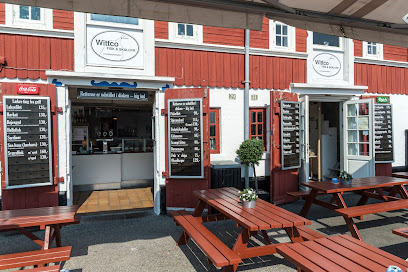
Highway 66
Hearty steaks, big burgers and Route 66 nostalgia in a casual, family-friendly American diner just steps from Skagen’s bustling harbourfront.
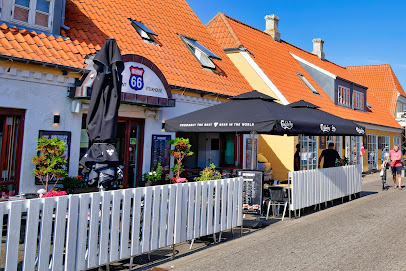
Cafe & Restaurant Kokkenes
Cosy, centrally located café-restaurant in Skagen serving generous Danish seafood and brasserie classics, with set menus and a lively terrace in summer.
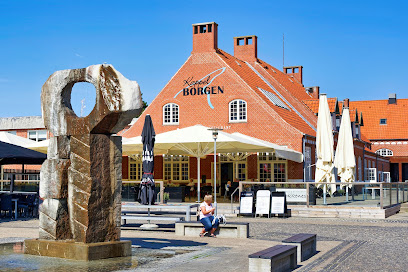
Markets, malls and hidden boutiques
Kiosk v / The Buried Church
Unpretentious kiosk-café by Skagen’s Sand-Buried Church, pairing simple refreshments with one of Denmark’s most atmospheric dune-side historic sites.
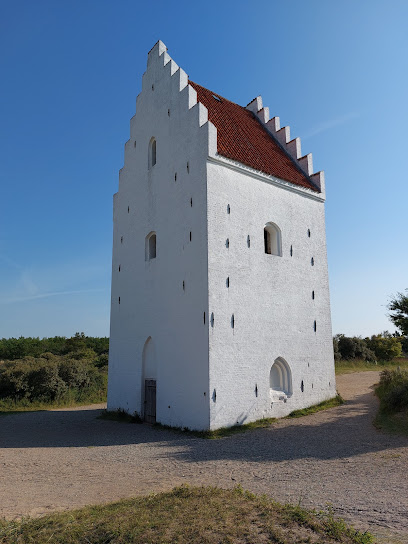
Grenen Kiosk
A compact souvenir and snack stop at Denmark’s northern tip, Grenen Kiosk pairs coastal mementos with simple refreshments right by the dunes of Skagen.
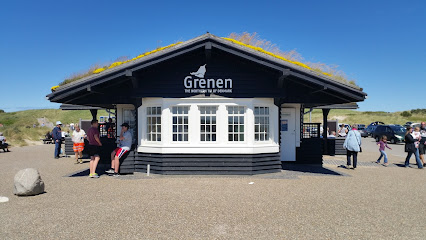
Bolcheriet A/S - Skagen
Working candy workshop and shop in Skagen where you watch traditional sweets being made, taste warm samples and pick coastal-inspired Danish treats.
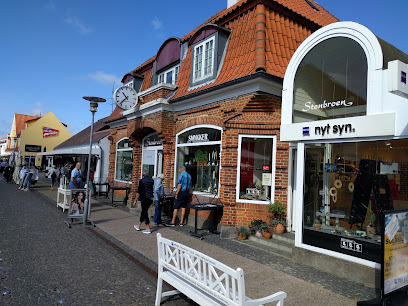
Skagen Toys
Independent toy store in Skagen offering quality playthings and games for children in a welcoming community setting.
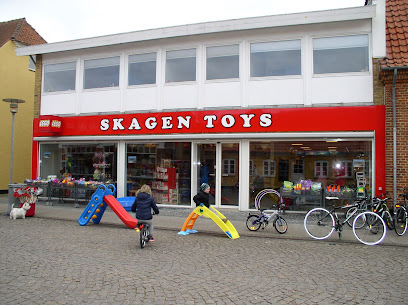
Skagen Antik og Genbrug
Characterful Skagen thrift and antiques shop where seaside nostalgia, Scandinavian vintage and everyday bargains meet in one relaxed local treasure trove.
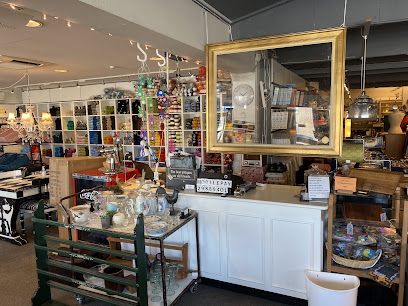
Galleri Bo
Contemporary Nordic art gallery showcasing glass, paintings, ceramics and sculptures from 25+ artists.
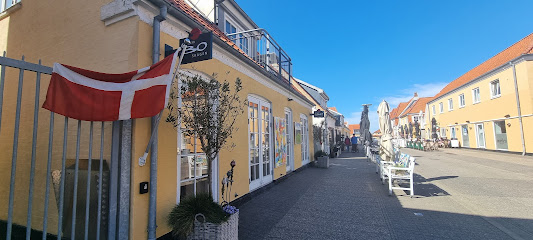
Pier1 ApS
Atmospheric harbourfront lifestyle store in Skagen, blending New England interiors, curated fashion and homeware, and a cosy fireside lounge just steps from the quay.
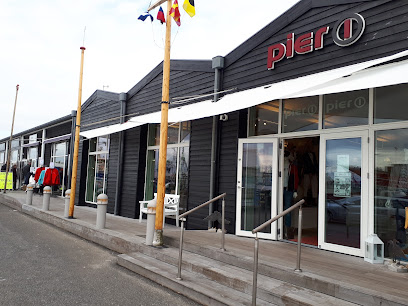
Skagen Boghandel ApS
Cosy local bookshop in central Skagen, blending books, games and stationery with friendly service and a touch of everyday Danish coastal life.
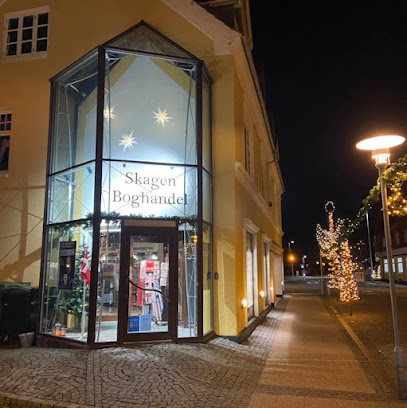
Westwind
Harborfront general store on Skagen’s quay, blending everyday essentials with salty air, seaside light and the low-key rhythm of Denmark’s northern tip.
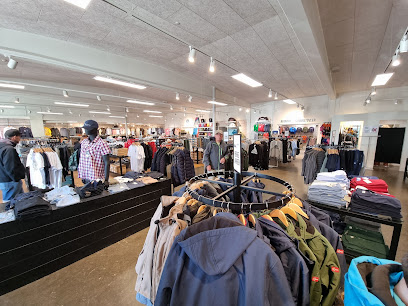
Butik Skagen
A cosy coastal boutique on Skagen’s main street, blending relaxed Scandinavian fashion with the yellow-hued charm of a classic Skagen house.
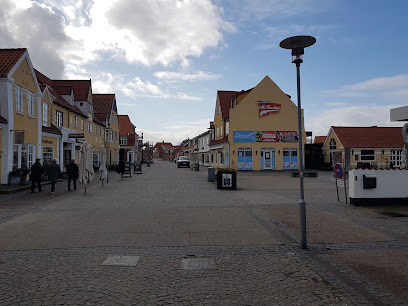
Ny Form Skagen
Practical sports and outdoor clothing in central Skagen, ideal for kitting out coastal walks, beach days and active adventures at Denmark’s northern tip.
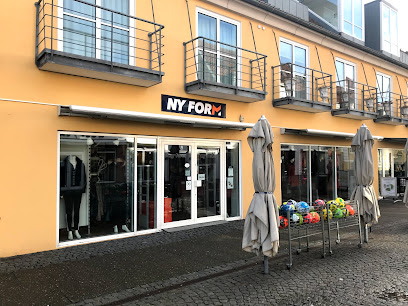
Huset Holst A/S
A historic Skagen design house where Scandinavian furniture, lighting and interiors are styled like a real home, inviting you to browse, dream and refine your own living space.
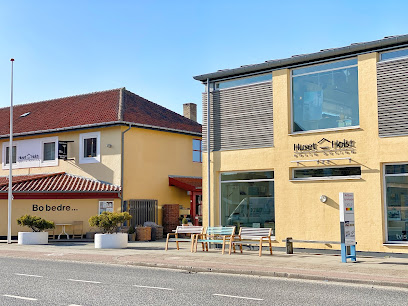
SKAGEN POTTERI
Small working ceramics studio and shop in central Skagen, known for robust stoneware sinks and coastal-inspired pottery that bring a touch of Nordic craft into everyday life.
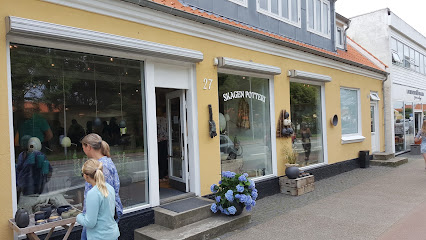
Kop & Kande Skagen
Practical Danish homeware and gift ideas in the center of Skagen, blending everyday kitchen essentials with cozy Nordic design for locals and visitors alike.
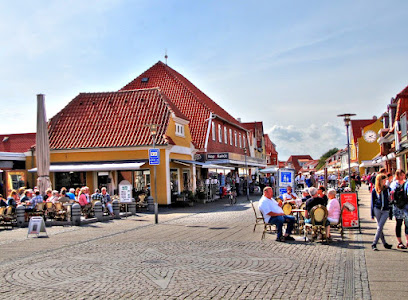
Blue Cross Op Shop
Community-minded thrift store in Skagen where budget-friendly finds, friendly volunteers and a charitable mission turn everyday shopping into a feel-good pause.
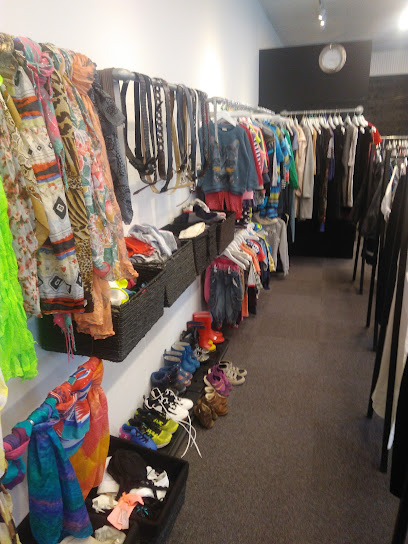
Essential bars & hidden hideouts
Jakobs Café & Bar
A vibrant harbour café, disco bar, and live music hotspot, uniting Skagen’s locals and visitors with great food, drinks, and genuine coastal Danish atmosphere.
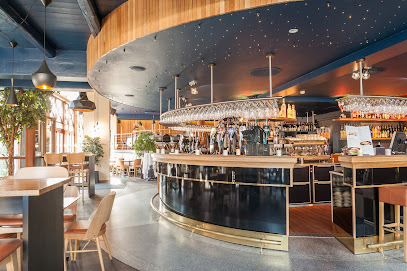
Skagen Bryghus A/S
Denmark’s northernmost brewery, blending house-brewed beer, hearty Danish fare and live music in a sunny Skagen courtyard just behind the town’s church.
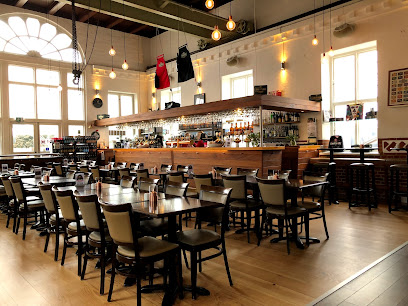
Café Knuth's
Harbourside café and restaurant in central Skagen serving modern Danish dishes, fresh seafood, and homemade treats in a cozy, inviting setting with marina views.
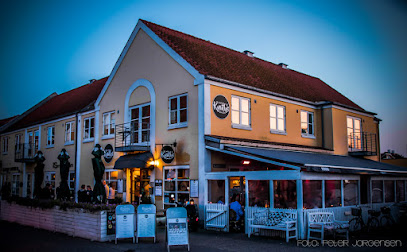
Green´s Pub og Café
Skagen's beloved harborfront pub where maritime heritage, fresh seafood, and live music create authentic Danish coastal charm.
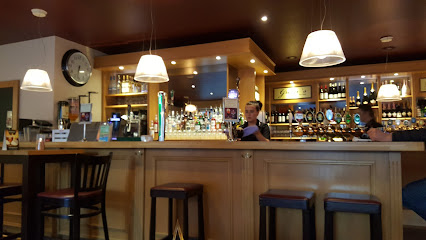
Highway 66
Highway 66 brings retro American diner flair and classic steaks to Skagen’s harbor, offering generous meals, lively décor, and family-friendly dining by the waterfront.

Cafe & Restaurant Kokkenes
Modern Nordic cuisine meets Danish hospitality at Skagen’s atmospheric Café & Restaurant Kokkenes, celebrated for fresh seafood and seasonal, artfully plated dishes.

Mcknudsens Rest.
Experience classic Danish seafood, maritime charm, and local hospitality at Skagen’s beloved M.C. Knudsen’s Restaurant, perfectly situated in the town’s lively center.
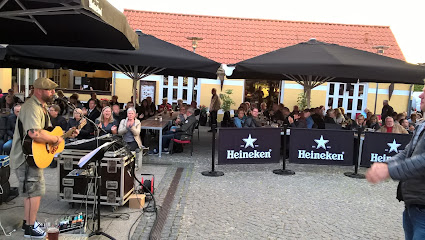
Hyttefadet Gl. Skagen
Experience authentic Danish cuisine and warm hospitality at Hyttefadet Gl. Skagen, a culinary landmark in Denmark's picturesque northern town.
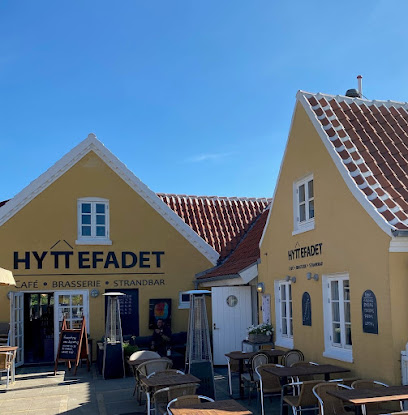
Buddy Holly Skagen
Late-night bar and nightclub in Skagen’s harbor district, where rock ’n’ roll vibes, live music, and an easygoing crowd keep the party going into the small hours.
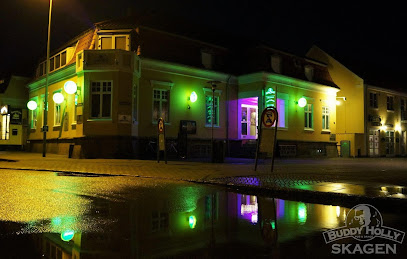
Linie 74 af 2019
Authentic Danish pub with hidden courtyard garden and live music in Skagen's harbor heart.
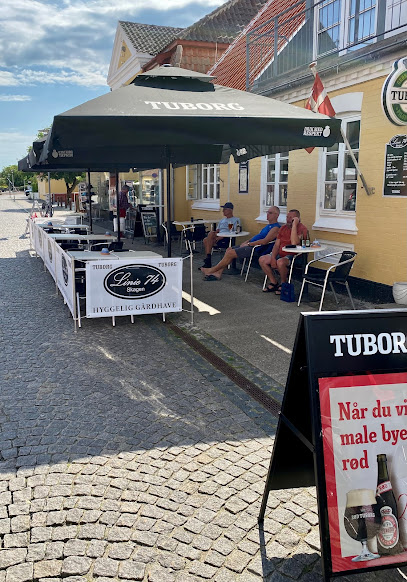
Kompasset
Traditional harbor pub in Skagen where locals and visitors meet year-round for beer, coffee, live music and laid-back hygge by the waterfront.
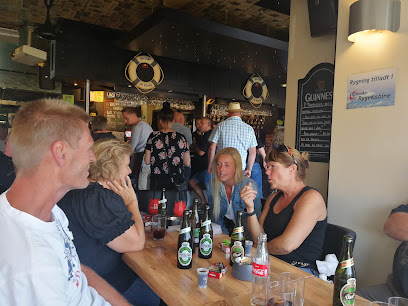
Viseværtshuset
Classic Danish hospitality and hearty fare, Viseværtshuset in Skagen invites you to dine like a local amidst maritime charm and lively traditions.
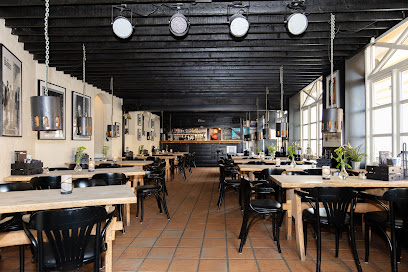
Tørst Cocktailbar
Inventive Nordic-inspired cocktails, cosy harbour-side hygge and shareable tapas boards in a stylish, candlelit bar at the heart of Skagen.
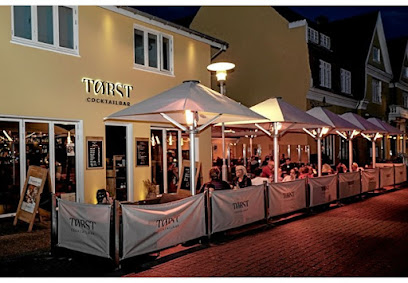
Sømærket Vin- & CiderBar
Anarchist wine bar in historic Skagen serving curated European wines, ciders, and Nordic small plates.
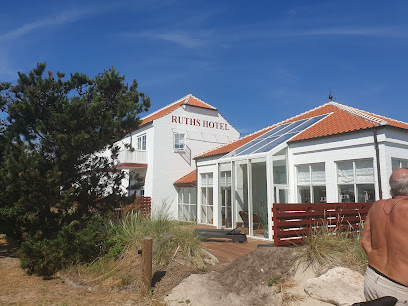
Apéro Champagne & Kaffebar
Authentic French bistro and champagne bar in a historic railway station, blending Parisian elegance with Nordic charm.
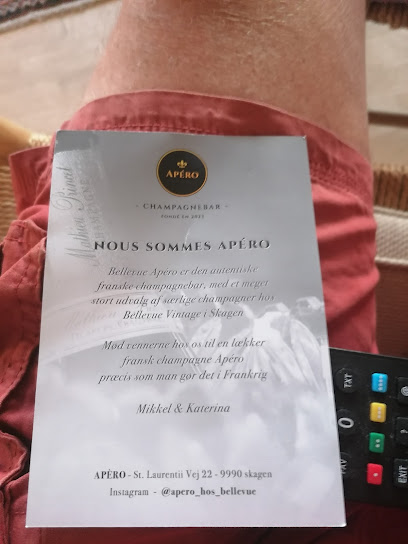
Local Phrases
-
- HelloHej
[hey] - GoodbyeFarvel
[far-vel] - YesJa
[ya] - NoNej
[nay] - Please/You're welcomeVær så god
[ver sa go] - Thank youTak
[tak] - Excuse me/SorryUndskyld
[un-skeeld] - How are you?Hvordan har du det?
[vohr-dan har doo deh] - Fine. And you?Godt. Og dig?
[goht. oh di] - Do you speak English?Taler du engelsk?
[ta-ler doo en-gelsk] - I don't understandJeg forstår ikke
[yeh for-stor ee-keh]
- HelloHej
-
- I'd like to see the menu, pleaseJeg vil gerne se menuen, tak
[yeh vil gehr-neh seh meh-noo-en, tak] - I don't eat meatJeg spiser ikke kød
[yeh spee-ser ee-keh kuhd] - Cheers!Skål!
[skol] - I would like to pay, pleaseJeg vil gerne betale, tak
[yeh vil gehr-neh beh-tah-leh, tak]
- I'd like to see the menu, pleaseJeg vil gerne se menuen, tak
-
- Help!Hjælp!
[hyelp] - Go away!Gå væk!
[goh vehk] - Call the Police!Ring til politiet!
[reeng teel po-lee-tee-et] - Call a doctor!Ring efter en læge!
[reeng ef-ter en leh-eh] - I'm lostJeg er blevet væk
[yeh er bleh-veh vehk] - I'm illJeg er syg
[yeh er soog]
- Help!Hjælp!
-
- I'd like to buy...Jeg vil gerne købe...
[yeh vil gehr-neh kuh-beh] - I'm just lookingJeg kigger bare
[yeh kee-geh beh-reh] - How much is it?Hvad koster det?
[vahd koh-stehr deh] - That's too expensiveDet er for dyrt
[deh er for deer] - Can you lower the price?Kan du sænke prisen?
[kan doo sehn-keh pree-sen]
- I'd like to buy...Jeg vil gerne købe...
-
- What time is it?Hvad er klokken?
[vahd er kloh-ken] - It's one o'clockKlokken er et
[kloh-ken er et] - Half past (10)Halv ti
[halv tee] - MorningMorgen
[mor-gen] - AfternoonEftermiddag
[ef-ter-mee-dag] - EveningAften
[af-ten] - YesterdayI går
[ee gohr] - TodayI dag
[ee dah] - TomorrowI morgen
[ee mor-gen] - 1Et
[et] - 2To
[toh] - 3Tre
[treh] - 4Fire
[fee-reh] - 5Fem
[fem] - 6Seks
[seks] - 7Syv
[siv] - 8Otte
[ot-teh] - 9Ni
[nee] - 10Ti
[tee]
- What time is it?Hvad er klokken?
-
- Where's a/the...?Hvor er en/et...?
[vohr er en/et] - What's the address?Hvad er adressen?
[vahd er ad-res-sen] - Can you show me (on the map)?Kan du vise mig (på kortet)?
[kan doo vee-seh meeh (poh kohr-teh)] - When's the next (bus)?Hvornår er næste (bus)?
[vor-nar er nes-teh (boos)] - A ticket (to ....)En billet (til ....)
[en bee-leht (teel)]
- Where's a/the...?Hvor er en/et...?
History of Skagen
-
Skagen, located at the northern tip of Denmark, has a history that dates back to the early Middle Ages. The name 'Skagen' is derived from the Old Norse word 'Skaga,' meaning 'to jut out,' a fitting description for the town's geographic location. The earliest recorded mention of Skagen appears in the 13th century, when the area was a modest fishing village.
-
In the late 19th and early 20th centuries, Skagen became a thriving artists' colony. The Skagen Painters, a group of Scandinavian artists, were drawn to the area by its unique natural light and scenic coastal landscapes. Notable members included P.S. Krøyer, Anna Ancher, and Michael Ancher, whose works captured the essence of Skagen’s beauty and its people. Their legacy is preserved in the Skagens Museum, which showcases many of their masterpieces.
-
Skagen's strategic location made it an essential hub for maritime trade during the Middle Ages. The town played a vital role in the Hansa trade network, facilitating the exchange of goods between the Baltic and North Sea regions. Skagen's fishermen also became renowned for their skills and bravery, often venturing into treacherous waters to secure their livelihoods.
-
Due to its hazardous coastal waters, shipwrecks were a common occurrence around Skagen. In response, the Danish government established the Wreckmaster System in the 18th century. The Wreckmasters were responsible for salvaging goods from shipwrecks and ensuring the safety of survivors. This system played a crucial role in aiding maritime navigation and safety in the region.
-
In the 20th century, Skagen transitioned from a fishing village to a popular tourist destination. The town's picturesque landscapes, historic buildings, and vibrant cultural scene attract visitors from all over the world. The iconic yellow houses with red-tiled roofs, sandy beaches, and the unique natural phenomenon of Grenen, where the North Sea and the Baltic Sea meet, are major attractions.
-
Grenen, the northernmost point of Denmark, is a natural wonder where the North Sea and the Baltic Sea converge. This unique phenomenon creates a fascinating visual spectacle, as waves from the two seas collide. Grenen has been a significant landmark in Skagen for centuries, symbolizing the town’s connection to the sea and its maritime heritage.
-
Skagen is home to several historic lighthouses that have guided sailors safely through its treacherous waters for centuries. The White Lighthouse, built in 1747, and the Grey Lighthouse, completed in 1858, are notable examples. The Skagen Lighthouse, also known as Skagen’s Grey Lighthouse, stands as a testament to the town’s long-standing maritime significance and is a popular historical site.
-
Skagen hosts a variety of cultural festivals and events that celebrate its rich heritage. The Skagen Festival, Denmark's oldest music festival, takes place every summer and features a mix of folk, rock, and traditional music. Other notable events include the Skagen Winter Swimming Festival and the annual celebration of Midsummer's Eve with bonfires on the beach. These festivals draw both locals and tourists, creating a vibrant and festive atmosphere.
-
Tourism in Skagen began to flourish in the early 20th century, bolstered by the town's growing reputation as an artists' haven and its natural beauty. The development of transportation infrastructure, including railways and roads, made it more accessible to visitors. Today, Skagen is a major tourist destination in Denmark, known for its stunning landscapes, artistic heritage, and charming coastal town vibe.
Skagen Essentials
-
Skagen is located at the northernmost tip of Denmark. The nearest airports are Aalborg Airport, approximately 110 kilometers away, and Aarhus Airport, about 190 kilometers away. From these airports, you can rent a car or take a combination of trains and buses to reach Skagen. There are also direct train services from Copenhagen to Frederikshavn, from where you can catch a local train to Skagen. The train journey from Copenhagen takes around 5-6 hours.
-
Skagen is a small town, and many attractions are within walking or biking distance. Bicycles can be rented from various shops around town. There are also local buses that connect different parts of Skagen and surrounding areas. Taxis are available but can be more expensive. For exploring the surrounding regions, renting a car is a convenient option.
-
The official currency in Denmark is the Danish Krone (DKK). Credit and debit cards are widely accepted in Skagen, including at hotels, restaurants, and shops. ATMs are available throughout the town for cash withdrawals. It is advisable to carry some cash for smaller establishments and markets.
-
Skagen is generally a very safe destination for tourists. There are no specific high-crime areas targeting tourists, but it is always wise to take standard precautions such as keeping an eye on your belongings in crowded places and avoiding walking alone late at night. The town has a low crime rate, and violent crime is rare.
-
In case of emergency, dial 112 for immediate assistance, which connects you to police, fire, and medical services. Skagen has a local police station and a medical center for non-emergency health issues. Pharmacies are available for over-the-counter medications. It is recommended to have travel insurance that covers medical emergencies.
-
Fashion: Do dress in layers as the weather can be unpredictable. Casual and comfortable clothing is generally acceptable. Avoid overly revealing clothing. Religion: Do respect local customs when visiting religious sites. Public Transport: Do be respectful and allow elderly passengers to sit. Eating and drinking on public transport is generally discouraged. Greetings: Do greet people with a handshake and maintain eye contact. Danes value personal space, so avoid overly familiar gestures. Eating & Drinking: Do try local seafood delicacies and traditional Danish dishes. Do not tip excessively; a small tip or rounding up the bill is sufficient.
-
To experience Skagen like a local, visit the local markets and buy fresh seafood and other local products. Explore the Skagen Odde Nature Centre and learn about the unique geography of the area. Take a bike ride to Grenen, where the North Sea and the Baltic Sea meet. Enjoy a meal at one of the traditional fish restaurants and try 'Skagen Fiskesuppe' (Skagen fish soup). Engage with locals who are usually friendly and willing to share tips about their town.
Nearby Cities to Skagen
-
Things To Do in Frederikshavn
-
Things To Do in Gothenburg
-
Things To Do in Aalborg
-
Things To Do in Randers
-
Things To Do in Viborg
-
Things To Do in Kristiansand
-
Things To Do in Fredrikstad
-
Things To Do in Aarhus
-
Things To Do in Silkeborg
-
Things To Do in Herning
-
Things To Do in Horsens
-
Things To Do in Jönköping
-
Things To Do in Helsingør
-
Things To Do in Hillerød
-
Things To Do in Kalundborg












